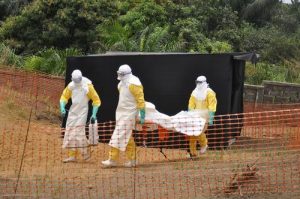Shaping the future: Our strategy for research and innovation in humanitarian response.

Shaping the future: Our strategy for research and innovation in humanitarian response.

The recent Ebola epidemic in West Africa highlights how engaging with the sociocultural dimensions of epidemics is critical to mounting an effective outbreak response. Community engagement was pivotal to ending the epidemic and will be to post-Ebola recovery, health system strengthening and future epidemic preparedness and response. Extensive literatures in the social sciences have emphasized how simple notions of community, which project solidarity onto complex hierarchies and politics, can lead to ineffective policies and unintended consequences at the local level, including doing harm to vulnerable populations. This article reflects on the nature of community engagement during the Ebola epidemic and demonstrates a disjuncture between local realities and what is being imagined in post-Ebola reports about the lessons that need to be learned for the future. We argue that to achieve stated aims of building trust and strengthening outbreak response and health systems, public health institutions need to reorientate their conceptualization of ‘the community’ and develop ways of working which take complex social and political relationships into account.


 Please upgrade your browser
Please upgrade your browser
You are seeing this because you are using a browser that is not supported. The Elrha website is built using modern technology and standards. We recommend upgrading your browser with one of the following to properly view our website:
Windows MacPlease note that this is not an exhaustive list of browsers. We also do not intend to recommend a particular manufacturer's browser over another's; only to suggest upgrading to a browser version that is compliant with current standards to give you the best and most secure browsing experience.